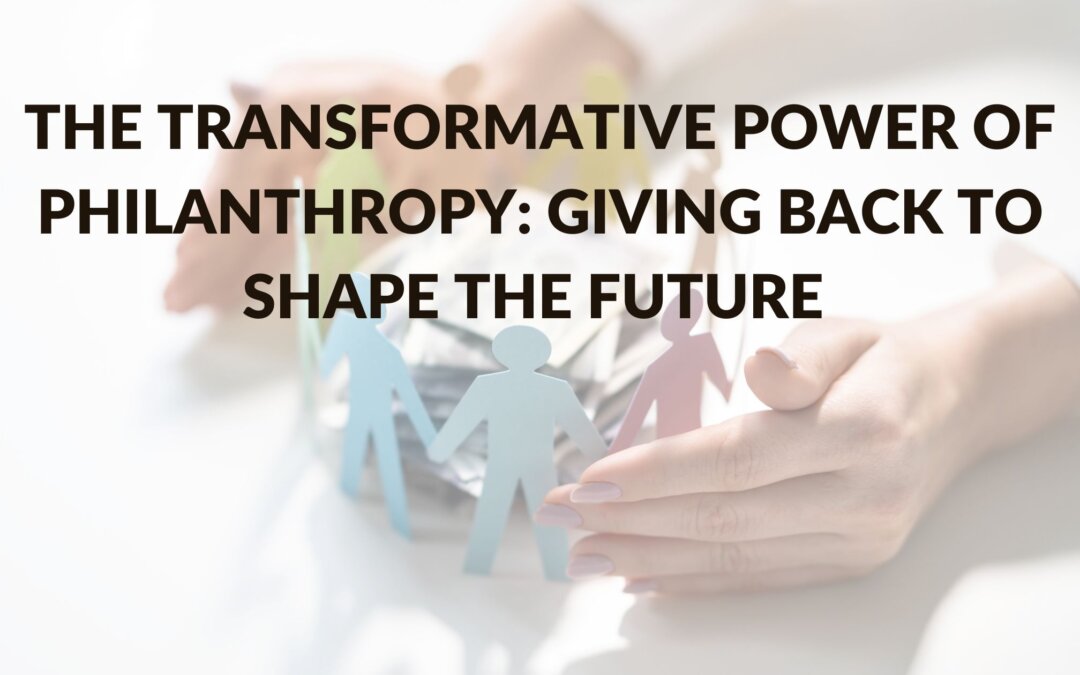Philanthropy is more than the act of giving; it’s a commitment to improving lives and driving change. Rooted in generosity and compassion, philanthropy extends beyond financial donations to include time, skills, and resources devoted to causes that matter. It’s a vital force that bridges gaps, addresses societal challenges, and inspires collective progress.
Understanding Philanthropy
At its heart, philanthropy stems from the Greek words philos (love) and anthropos (humanity), meaning “love of humanity.” It’s the act of giving back with a purpose, aiming to uplift those in need while fostering equality and opportunity. Unlike charity, which often addresses immediate needs, philanthropy focuses on sustainable, long-term solutions to systemic issues.
The Role of Philanthropy in Society
Philanthropy plays a crucial role in tackling global challenges, from poverty and education inequality to climate change and healthcare access. Governments and large organizations often have limited capacity to address every issue; philanthropic efforts step in to fill the gaps, offering innovative approaches and fostering partnerships for impactful results.
Beyond addressing immediate needs, philanthropy serves as a catalyst for change by funding research, supporting grassroots movements, and amplifying underrepresented voices. It enables communities to find tailored solutions that address local challenges effectively.
The Personal Rewards of Giving Back
Engaging in philanthropic work is a deeply fulfilling experience. For many, it’s an opportunity to leave a meaningful legacy while aligning actions with personal values. The act of giving not only uplifts others but also fosters a sense of purpose and connection.
Studies have shown that acts of generosity contribute to improved mental health, reduced stress, and greater life satisfaction. Philanthropy, whether through volunteering or financial support, builds empathy and strengthens interpersonal relationships.
Corporate Philanthropy: A Growing Movement
In today’s socially conscious world, businesses are stepping up to prioritize philanthropy. Corporate Social Responsibility (CSR) programs encourage companies to allocate resources toward community initiatives, environmental sustainability, and social justice.
Organizations that embrace philanthropy often see enhanced brand loyalty, employee satisfaction, and customer trust. For instance, companies like Patagonia and Microsoft have set benchmarks in integrating philanthropic values into their business models, demonstrating that giving back can also be good for business.
How to Get Involved
Philanthropy isn’t limited to billionaires or large corporations. Anyone can make a difference, regardless of the size of their contributions. Here are some ways to get involved:
- Identify Causes You Care About: Focus on areas where you’re passionate, such as education, environmental conservation, or mental health.
- Donate Smartly: Contribute funds to reputable organizations with transparent goals and measurable outcomes.
- Volunteer Your Time: Offer your skills or time to local nonprofits or community groups.
- Create Awareness: Use your platform, whether social media or personal connections, to amplify causes you support.
- Collaborate with Others: Partner with friends, family, or organizations to maximize your impact.
The Ripple Effect
Philanthropy inspires others to contribute, creating a ripple effect that amplifies its reach. When one person takes action, it often encourages their network to follow suit, multiplying the impact of the original effort.
Conclusion
Philanthropy is a powerful tool for building a more equitable and compassionate world. Whether you’re supporting a local food bank or funding global research, your contributions have the potential to change lives and shape the future.
By giving back in any capacity, you join a global movement that seeks to empower individuals, uplift communities, and create lasting, positive change. Together, we can make a difference—one act of generosity at a time.

